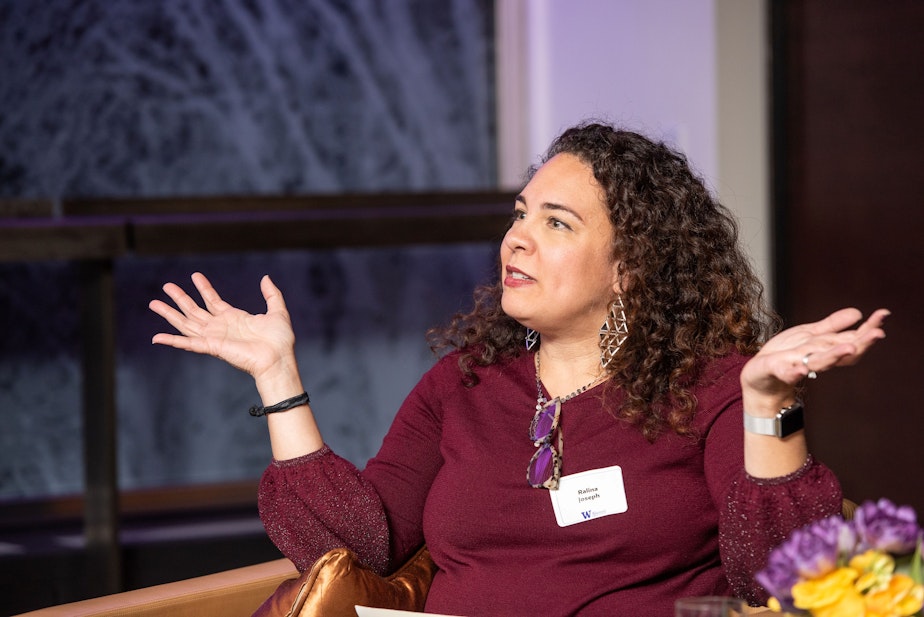How black women navigate race in the public eye

When people underestimate University of Washington professor Ralina L. Joseph, she said she tends to laugh it off, instead of showing anger.
That avoids the label "angry black woman."
This tactic of “strategic ambiguity” is the subject of her new book, “Postracial Resistance: Black Women, Media, and the Uses of Strategic Ambiguity.”
“Not all of us have the luxury of being our full selves in every room,” Joseph said, speaking with Adwoa Gyimah-Brempong on KUOW’s The Record.
“We learn how to shift ourselves, how to perform in ways to not make other people feel uncomfortable and also to shield us from racism, sexism, homophobia. And that type of coded performance is at the heart of strategic ambiguity.”
Adwoa Gyimah-Brempong talks to Ralina L. Joseph about her new book and the concept of strategic ambiguity.
Interview Highlights
On when to speak out and when to use strategic ambiguity
I think it’s really important that we have moments that we are speaking very clearly against racialized sexism; you’re speaking truth to power.
But there are also those moments when we are perhaps the only one in the room and we are figuring out how to operate for our own survival. Those moments when we are choosing to temporarily not speak, or not to speak in code, that we also have to figure out how we circle back around, to be able to speak truth to power later.
When we know we are the only ones that have been let through in these elite spaces, how do we figure out how to open up those spaces to bring more of us through?
Sponsored
Inequality in our world is incredibly complicated. In order for us to dismantle this incredibly complicated system and structure we need a toolbox full of tools.
I think strategic ambiguity is one of these tools that we have to use while we partner it up with other forms of speaking truth to power.
On calling racism racism
In our culture I think that white people imagine that somehow acknowledging racism is worse than being a murderer. Even that acknowledgement of holding on to any type of a racial animus freezes people from being able to unpack their own racism, to actually being able to change their behaviors.
I think where we need to start is the acknowledgement that we all hold racism deeply tight inside of our body, not for the most part because we are bad people, but because we come from a society that is structured around racism.
Sponsored
Racism is woven into the fabric of our history, it’s woven into the fabric of our institutions.
It only makes sense that people – including people of color – speak through racism. And the way that we actually learn how to unpack that is by acknowledging it and then working through it.
Produced for the web by Kara McDermott.



